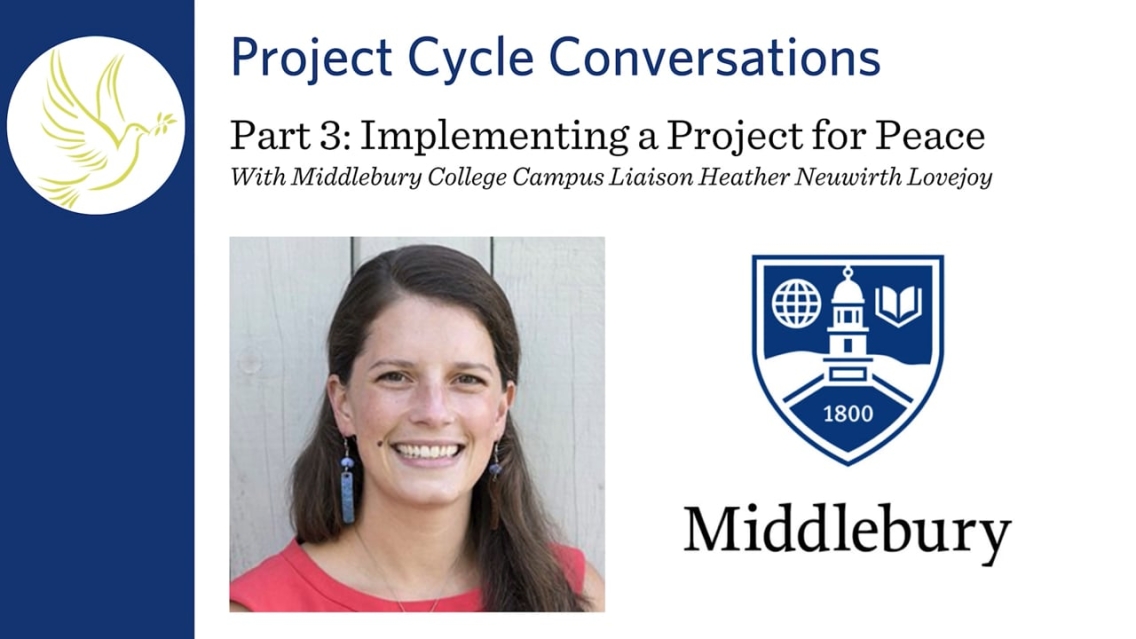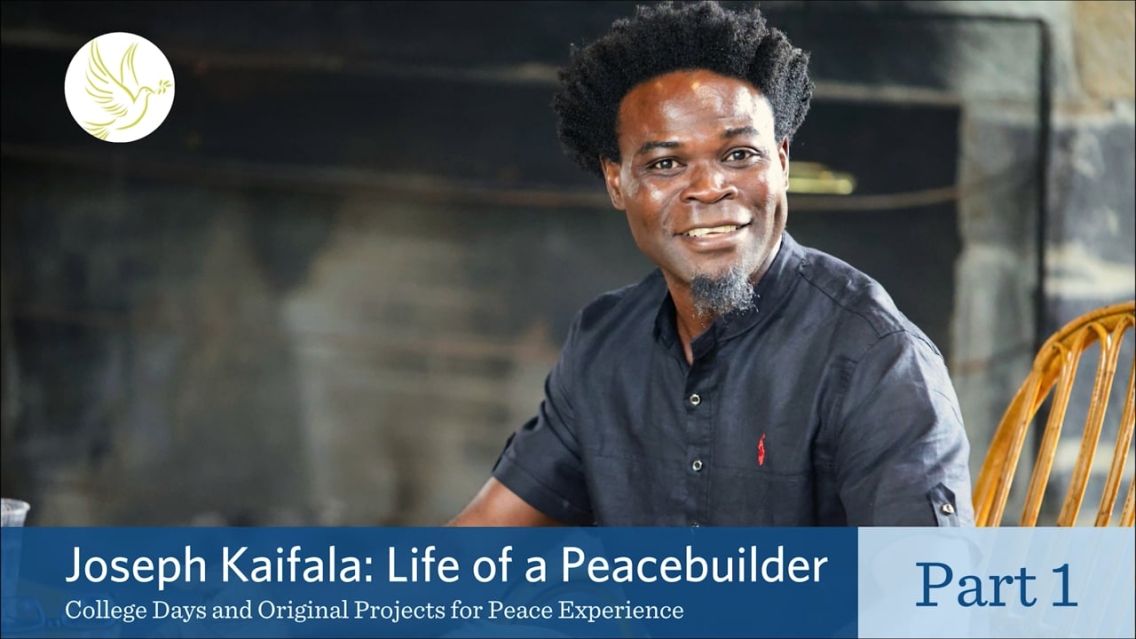Stage 3: Implementing
Stage Three: Implementing
At this stage, your Project for Peace has been awarded funding. Congratulations!
No matter how much attention you’ve given to the previous stages, implementing a Project for Peace will bring unexpected challenges that require you to pivot and reset. This may be frustrating, but it is normal during the implementation of a complex project.
In this third video, Heather discusses ways to set yourself up for success, and the pitfalls to watch out for.
Questions About Implementing
How can I stay on track while implementing my project?
We suggest you keep your planning materials close as there will certainly be unexpected events and your earlier notes will help you stay on track and consider pivots. It can help to keep a log of reflections, disappointments, new ideas, progress, decisions, and expenditures. The log doesn’t need to be a written document: try recording voice memos on your phone or taking snapshots of key moments.
Note that implementation activities may begin before you leave campus.
Regularly ask yourself:
- Am I on schedule? If not, what adjustments can I make?
- Am I on budget? If not, what adjustments can I make?
- What changes might I need to make to my overall plan? Who do I need to discuss these changes with?
How do I strengthen relationships with community partners?
Throughout implementation, you should meet regularly with community partners to create plans and seek feedback. Listen to new ideas with an open mind.
Together, you can celebrate milestones and learning. Don’t be afraid to admit missteps or failures.
During those gatherings, think about who is “in the room” with the ability to influence the project, and who may have been inadvertently left out and need to be included next time.
Make sure to attend to the people around you and acknowledge the various demands they have on their time. It may be important to spend time relaxing together, not just working.
How can I strengthen my project?
Here are some ideas and steps to consider:
- Revisit your intentions by rereading your proposal and planning notes.
- Notice constructive failures: these are missteps or barriers that open new possibilities.
- Ask about community strengths and assets, and find ways to sustain or enhance them.
- Reflect on the inequities and/or conflicts you are noticing in your project community. How might you address them (now, or in the future)?
- Learn about ethical storytelling and photography: https://ethicalstorytelling.com/about/
- Check in with your campus liaison regarding your progress and expenditures.
- Attend any Projects for Peace events to meet other current grantees.
Do you have any advice for maintaining personal well-being?
The pace of implementing a Project for Peace can be fast, so be sure to take breaks.
Avoid unnecessary risks. Pay attention to local and regional events and news.
Let friends know how you’re doing, and ask for help if needed.
Additional Resources
Relevant resources for the implementation stage will be added here as they become available. If you need further guidance, reach out to your campus liaison for support.
Joseph Kaifala: Life of Peacebuilder - Part 1
Joseph Kaifala was a member of the original 2007 Projects for Peace grantee cohort. In 2023, he won the inaugural Projects for Peace Alumni Award.
In July 2023 he visited Middlebury College and talked with us about his peacebuilding journey. This is the first part of that conversation where Joseph reflects on his college days and his original Projects for Peace experience.



